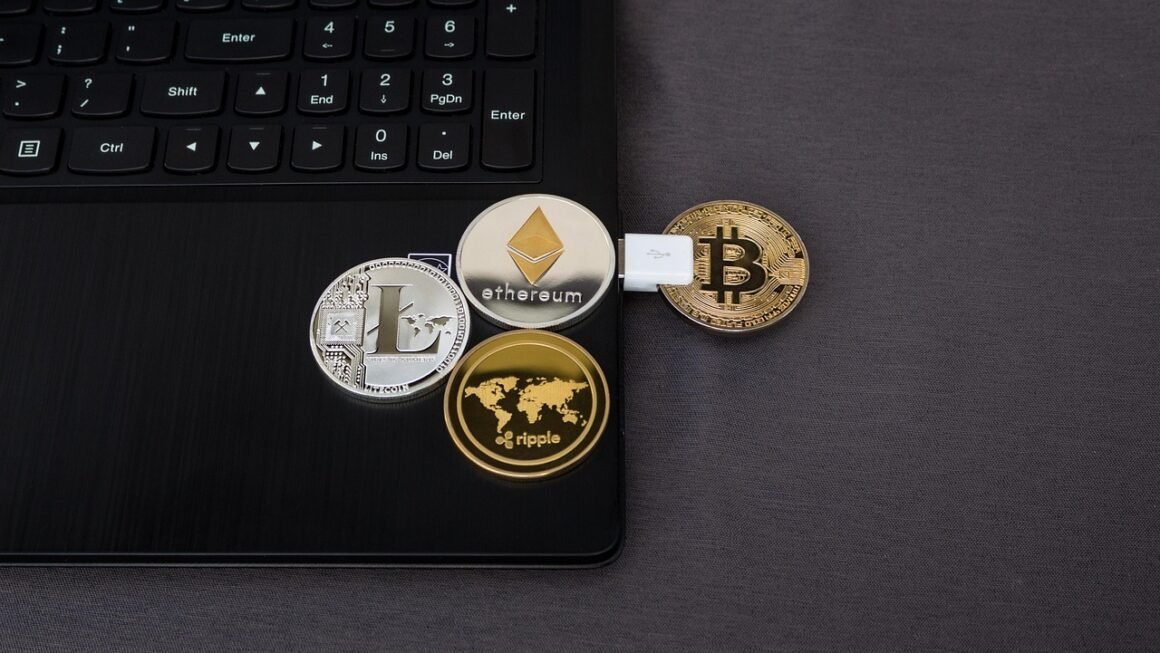Smart contracts are revolutionizing the way we think about agreements, trust, and automation. They represent a fundamental shift in how transactions are executed, verified, and enforced, moving away from traditional intermediaries towards decentralized, transparent systems. Imagine a world where contracts automatically self-execute when predetermined conditions are met, eliminating the need for lawyers, escrow services, and even banks in certain scenarios. This is the promise of smart contracts, and their potential impact spans industries, from finance and supply chain management to healthcare and real estate. Let’s delve into the fascinating world of smart contracts and explore their intricacies and applications.
What are Smart Contracts?
Definition and Core Principles
At their core, smart contracts are self-executing contracts written in code and stored on a blockchain. Think of them as digital agreements that automatically enforce the terms and conditions agreed upon by the parties involved. These contracts are:
- Decentralized: They exist on a blockchain, distributed across a network of computers, eliminating single points of failure and censorship.
- Immutable: Once deployed, the code of a smart contract cannot be altered, ensuring transparency and trust. This immutability is a cornerstone of their security.
- Autonomous: They execute automatically when predefined conditions are met, removing the need for intermediaries. This automation reduces costs and delays.
- Transparent: All contract code and transaction history are publicly auditable on the blockchain, enhancing accountability.
- Deterministic: Given the same input, the contract will always produce the same output, ensuring predictability.
This combination of features makes smart contracts incredibly powerful for automating and streamlining a wide range of processes.
How Smart Contracts Work: A Simplified Explanation
The lifecycle of a smart contract typically involves these steps:
- Creation: The contract terms are defined and coded using a smart contract language like Solidity (for Ethereum) or Vyper.
- Deployment: The coded contract is deployed to a blockchain. This deployment involves sending a transaction to the blockchain, which incurs a cost (often referred to as “gas” on Ethereum).
- Execution: When the predefined conditions (e.g., a specific date, a price threshold, or data from an external oracle) are met, the contract automatically executes its functions.
- Verification: The execution of the contract is verified by the nodes on the blockchain network, ensuring its integrity.
- Finalization: The results of the execution are recorded on the blockchain, making them permanent and auditable.
Imagine a simple betting contract. Two parties deposit funds into the contract. The contract is coded to wait for data from a reliable sports oracle. If the oracle reports Team A won, the contract automatically transfers the funds to the party who bet on Team A.
Key Components of a Smart Contract
- State Variables: Store the contract’s data, like balances, ownership records, or flags indicating completion.
- Functions: Define the actions the contract can perform, such as transferring funds, updating records, or triggering events.
- Events: Allow the contract to communicate with external applications or users, notifying them of important changes or actions. This is how applications can react to changes on the blockchain.
- Modifiers: Restrict access to certain functions based on specific conditions, ensuring only authorized parties can execute them. For example, a modifier could require that only the contract owner can change certain settings.
Benefits of Using Smart Contracts
Increased Efficiency and Reduced Costs
Smart contracts automate processes, eliminating the need for manual intervention and intermediaries. This results in:
- Faster Transaction Times: Transactions can be processed much faster than traditional methods. For instance, international money transfers that typically take days can be completed in minutes.
- Lower Transaction Fees: By removing intermediaries, smart contracts significantly reduce transaction fees. Think of cutting out escrow services or banks in certain real estate transactions.
- Reduced Administrative Overhead: Automation minimizes paperwork and manual data entry, freeing up resources for other tasks.
For example, in supply chain management, smart contracts can automatically trigger payments when goods reach a specific location, eliminating delays and reducing the risk of fraud.
Enhanced Transparency and Trust
The immutable and transparent nature of smart contracts fosters trust and accountability:
- Immutable Records: Once written to the blockchain, the terms and conditions of a smart contract cannot be altered, providing a tamper-proof record.
- Publicly Auditable Code: Anyone can inspect the code of a smart contract, ensuring transparency and allowing for independent verification. This builds confidence in the contract’s fairness and security.
- Reduced Risk of Disputes: Clearly defined and automatically enforced terms minimize the potential for disputes and litigation.
Consider a voting system based on smart contracts. Every vote is recorded on the blockchain and publicly auditable, making it virtually impossible to manipulate the results.
Improved Security and Automation
Smart contracts leverage the security of the underlying blockchain to protect against fraud and tampering:
- Decentralized Security: The distributed nature of the blockchain makes it extremely difficult to attack or compromise the contract.
- Automated Enforcement: Contracts are automatically enforced, eliminating the risk of human error or manipulation.
- Reduced Counterparty Risk: Smart contracts reduce reliance on trust, as the contract terms are automatically executed.
In the insurance industry, smart contracts can automate claims processing, automatically disbursing payments when specific criteria are met, such as weather data indicating a covered event occurred.
Use Cases of Smart Contracts
Decentralized Finance (DeFi)
DeFi is one of the most prominent use cases for smart contracts, enabling a range of financial services without traditional intermediaries:
- Decentralized Exchanges (DEXs): Platforms like Uniswap and SushiSwap use smart contracts to facilitate cryptocurrency trading without the need for a central order book.
- Lending and Borrowing Platforms: Aave and Compound use smart contracts to automate lending and borrowing processes, allowing users to earn interest on their cryptocurrency holdings or borrow assets by providing collateral.
- Stablecoins: Smart contracts are used to maintain the peg of stablecoins like DAI, ensuring their price stability.
- Yield Farming: Smart contracts automate the process of earning rewards by providing liquidity to DeFi protocols.
Supply Chain Management
Smart contracts can revolutionize supply chain operations by providing transparency and automation:
- Tracking and Traceability: Tracking goods as they move through the supply chain, ensuring authenticity and preventing counterfeiting. Each step of the process can be recorded on the blockchain.
- Automated Payments: Triggering payments automatically when goods reach a specific location or meet certain quality standards.
- Improved Efficiency: Streamlining logistics and reducing delays by automating key processes.
For example, a smart contract can track the origin and movement of coffee beans from farm to cup, ensuring consumers can verify the authenticity and ethical sourcing of their coffee.
Healthcare
Smart contracts can improve data security and efficiency in the healthcare industry:
- Secure Data Storage: Storing patient medical records securely on the blockchain, giving patients control over their data.
- Automated Insurance Claims: Automating the processing of insurance claims, reducing administrative overhead and improving efficiency.
- Pharmaceutical Supply Chain: Tracking and tracing pharmaceuticals to prevent counterfeiting and ensure authenticity.
Imagine a system where patients control access to their medical records through a smart contract, granting doctors temporary access only when needed.
Real Estate
Smart contracts can streamline real estate transactions and reduce costs:
- Automated Escrow Services: Replacing traditional escrow services with smart contracts, automating the release of funds when certain conditions are met.
- Tokenized Real Estate: Fractionalizing ownership of properties through tokenization, making real estate investments more accessible.
- Simplified Property Management: Automating rent collection and other property management tasks.
For instance, a smart contract can automatically transfer property ownership and funds when all parties have signed the agreement and the payment has been received.
Challenges and Limitations of Smart Contracts
Security Vulnerabilities
Despite their inherent security advantages, smart contracts are not immune to vulnerabilities:
- Code Bugs: Errors in the code can be exploited by attackers, leading to significant financial losses. The DAO hack in 2016 is a prime example.
- Oracle Manipulation: If a smart contract relies on data from an external oracle, the oracle can be manipulated to trigger unintended consequences.
- Gas Limit Issues: Complex contracts may require a significant amount of gas to execute, potentially exceeding the gas limit and causing the transaction to fail.
- Reentrancy Attacks: An attacker can recursively call a function within a smart contract before the initial function has completed, potentially draining the contract’s funds.
Tip: Thoroughly audit smart contract code before deployment, and use formal verification methods to identify potential vulnerabilities.
Scalability Issues
Many blockchain networks, particularly those using proof-of-work consensus mechanisms, face scalability challenges:
- Transaction Throughput: The number of transactions that can be processed per second is limited, leading to congestion and higher transaction fees.
- Block Size Limitations: The size of each block on the blockchain is limited, restricting the amount of data that can be stored.
- Network Congestion: High transaction volume can lead to network congestion and delays.
Tip: Explore layer-2 scaling solutions like rollups and sidechains to improve the scalability of smart contract applications.
Legal and Regulatory Uncertainty
The legal and regulatory landscape surrounding smart contracts is still evolving:
- Lack of Legal Frameworks: Many jurisdictions lack clear legal frameworks for smart contracts, making it difficult to enforce them in traditional courts.
- Regulatory Compliance: Smart contracts must comply with applicable regulations, such as KYC/AML requirements, which can be challenging to implement.
- Jurisdictional Issues: Determining the jurisdiction that governs a smart contract can be complex, especially when parties are located in different countries.
Tip: Consult with legal experts to ensure your smart contracts comply with applicable laws and regulations.
Conclusion
Smart contracts represent a transformative technology with the potential to revolutionize numerous industries. By automating processes, enhancing transparency, and improving security, they offer significant benefits over traditional contract systems. While challenges remain, particularly in the areas of security, scalability, and regulation, the ongoing development and adoption of smart contracts are paving the way for a more efficient, transparent, and trustworthy future. As the technology matures and legal frameworks evolve, we can expect to see even more innovative applications of smart contracts emerge, further shaping the future of business and governance. Understanding their capabilities and limitations is crucial for anyone looking to leverage the power of decentralized agreements.



